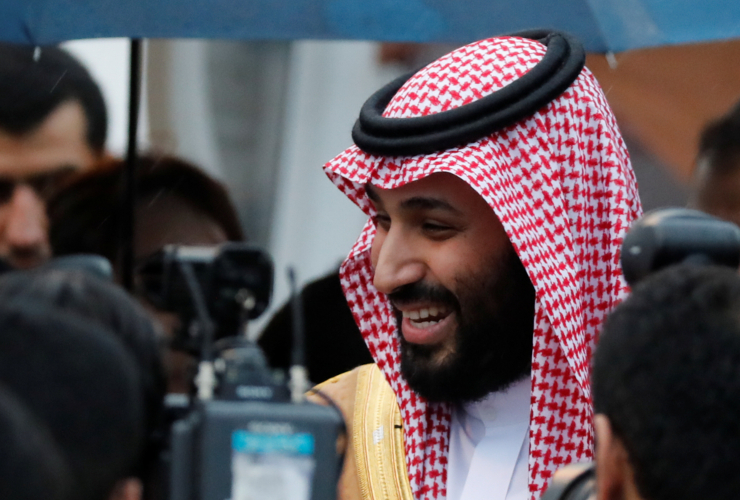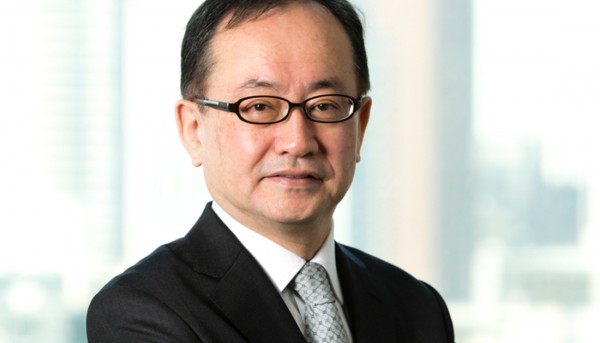The upcoming G20 summit in Osaka, Japan includes some of the world’s worst press freedom offenders. In anticipation of the forum, IPI has gathered a guide to the conditions of press freedom in some of the member states. Even at a glance, concerning trends emerge across countries, including police raids on newsrooms and failure to adequately investigate murders of journalists. Earlier this week, IPI urged Japan Prime Minister Shinzō Abe to highlight press freedom and journalist safety during the summit.
Australia
The recent raids conducted by Australian federal police on the home of NewsCorp journalist Annika Smethurst and the headquarters of ABC Sydney have placed a spotlight on media freedom in Australia. Both raids were conducted in response to investigative pieces published by the media outlets. These recent events suggest an attempt to intimidate journalists from carrying out reporting vital to public interest.
IPI condemns last week’s raid on #Australia‘s @abcsydney as “act of intimidation of journalists who have disseminated information of great public interest.” #pressfreedomhttps://t.co/iiw77FoZhj
— IPI (@globalfreemedia) June 10, 2019
Brazil
With threats, physical attacks and murders, Brazil continues to be one of South America’s most dangerous countries for journalists. The case of Glenn Greenwald, the investigative journalist who published a series of stories raising ethical questions about the conduct of Brazil’s justice minister and who subsequently received death threats, has brought this troubling environment for journalists into sharp focus. Brazilian President Jair Bolsonaro regularly launches verbal attacks and smears against the press.
China
China continues to use new technology and its control over the Internet to restrict access to information. Numerous foreign news outlets are blocked by the “Great Firewall of China”. Even more worryingly, dozens of journalists and bloggers are believed to be currently detained. The government is building a massive surveillance apparatus using artificial intelligence.
European Union
PACE has listed a series of “serious concerns” over the investigation into the murder of Maltese journalist #DaphneCaruanaGalizia, and demanded the setting up of an independent public inquiry into her death within three months. Full resolution: https://t.co/P9NB1FiR8b pic.twitter.com/r5caryp0TY
— PACE (@PACE_News) June 26, 2019
Though the EU in theory guarantees a high level of protection for fundamental rights, including press freedom, recent events have undermined these guarantees. At least two journalists, Daphne Caruana Galizia and Ján Kuciak, were murdered in EU member states for their work in the past two years, with Maltese authorities making virtually no progress in finding Caruana Galizia’s killers. Investigative journalists face harassment and intimidation in several member states. Hungary has silenced independent media and built a pro-government media conglomerate right under the EU’s eyes. Public broadcasters such as Poland’s TVP have been transformed into government propaganda channels.
France
In recent weeks, the French government has charged journalists with revealing state secrets and had them questioned by French intelligence services. This raises questions about Macron and his government’s commitment to press freedom. France has also passed a fake news law that, while attempting to curb disinformation during election season, has the potential to restrict press operations.
French media fear #pressfreedom is under attack as more and more journalists are charged with revealing state secrets and questioned by #France‘s intelligence services https://t.co/CKH639zvax via @dwnews
— IPI (@globalfreemedia) June 26, 2019
India
India ranks second globally when it comes to impunity for crimes committed against journalists, according to IPI research. In the last two years at least 14 journalists have been killed but police have failed to complete investigations into any of these murders. Meanwhile, physical attacks on journalists have spiralled and selected media organizations have been targeted by political parties. Journalists have been arrested and assaulted by the police for reporting about ruling party leaders.
Indonesia
President Joko “Jokowi” Widodo’s presidency has been marked by serious media freedom violations, including drastic restrictions to media access. Violence and intimidation against journalists – both Indonesian and foreign – are on the rise while many journalists have begun to censor themselves for fear of breaking the anti-blasphemy law, an offense that could result in arrest and jail time.
Italy
#Italy‘s delay and lack of transparency in investigating brutal police assault on journalist #StefanoOrigone is highly disturbing and sends dangerous message. @Artventuno @s_corradino @GFrancaviglia @repubblicahttps://t.co/lz8CO7bl2T
— IPI (@globalfreemedia) June 23, 2019
Italy saw the sharpest increase in media freedom violations among all Council of Europe states, with the number of incidents tripling between 2017 and 2018, according to the Council of Europe Platform to Promote the Protection of Journalism and Safety of Journalists. The case of Stefano Origone, a journalist who was brutally beaten by police in late May in Genoa, about which authorities have done little, puts this risk to press freedom on clear display.
Japan
Japan generally positive record on press freedom came under scrutiny this month when the U.N. special rapporteur on freedom of expression produced a report on Japan raising concerns about government officials directly and indirectly pressuring journalists. The special rapporteur also raised concerns about the chilling effect caused by Japan’s state secrecy law and other provisions. Earlier this year, a journalist was ordered to surrender his passport on his way to report in Yemen.
Mexico
Mexico remains one of the deadliest countries to be a journalist, according to IPI’s Death Watch. Just in the past six months, there have been a recorded six killings of journalists in Mexico. Nearly all killings end in impunity. That some of those killed were under government protection sheds serious doubts on the efficacy of the Federal Protection Mechanism, which was instituted to provide security to journalists and human rights defenders.
Russia
The recent arrest of investigative journalist Ivan Golunov demonstrates the risks to independent media. Through Golunov’s susbsequent release was rightly celebrated by press freedom supporters worldwide, critical journalists in Russia continue to face the threat of state harassment and intimidation. The threat of arbitrary detention or fines under a new law that criminalizes “disrespect to authority” stifles independent news outlets and allows the state-controlled propaganda machine to flourish. The measure is just one of many new legal tools Russia has adopted or is considering adopting that would severely restrict access to information and increase surveillance of journalists.
Saudi Arabia
The United Nations expert on extrajudicial killings called for an international investigation into Jamal Khashoggi’s death, excoriating the U.N. for its “paralysis” and Saudi Arabia for its handling of the case https://t.co/82K6oIOTi9
— The New York Times (@nytimes) June 27, 2019
The murder of journalist Jamal Khashoggi on October 2, 2018 at the Saudi consulate in Istanbul, Turkey, should cast a shadow over international relations with Saudi Arabia. This June the U.N. issued a special report finding credible evidence of high-level Saudi officials’, including Crown Prince Mohammad bin Salman, individual liability in Khashoggi’s murder. Saudi Arabia’s allies have failed to put pressure on the kingdom to prevent impunity.
Turkey
Turkey remains the world’s top jailer of journalists, with 139 journalists currently behind bars according to IPI research. More than 130 news outlets were forcibly closed since the July 2016 coup attempt. Moreover, an IPI trial monitoring programme has found that journalists face severe violations of their right to a fair trial. Journalists are targeted in online smear campaigns and recent weeks have seen a string of physical attacks.
Tremendously relieved that our IPI Executive Board member @KadriGursel released today on probation, after being re-arrested to serve out remaining sentence. A rare piece of good news for #pressfreedom in #Turkey – but sentence remains wrong. #FreeTurkeyJournalists https://t.co/BKRSB23KOJ
— IPI (@globalfreemedia) May 29, 2019
United Kingdom
The United Kingdom has taken on a leading role in promoting a free press, announcing this year a global campaign in support of media freedom. However, it has not been exempt from what seems to be a global trend of police raids on investigative journalists. In May two Northern Ireland reporters were arrested and their homes raided in connection with investigative work into police operations. New anti-terror and “online harms” legislation has drawn the scrutiny of the Council of Europe.
United States
The potential precedent set by the use of the Espionage Act to charge Julian Assange and a recent police raid on a journalist in San Francisco have cast a shadow over press freedom in the U.S. in the past months. These incidents come at a time in which the current president has sought to undermine U.S. media outlets by repeatedly calling into question their credibility and financial standing. Would-be autocrats across the globe are copying his anti-press rhetoric.


